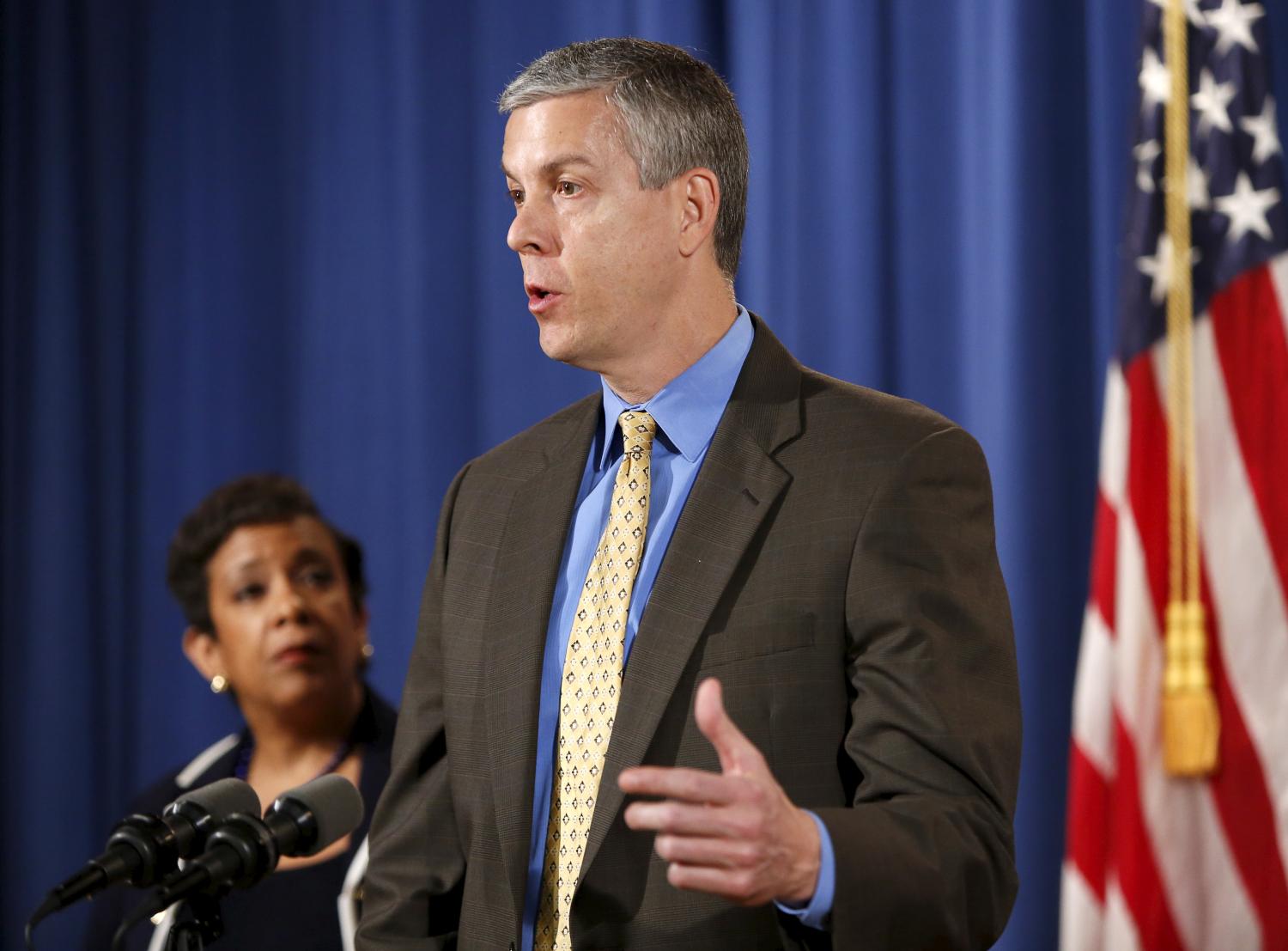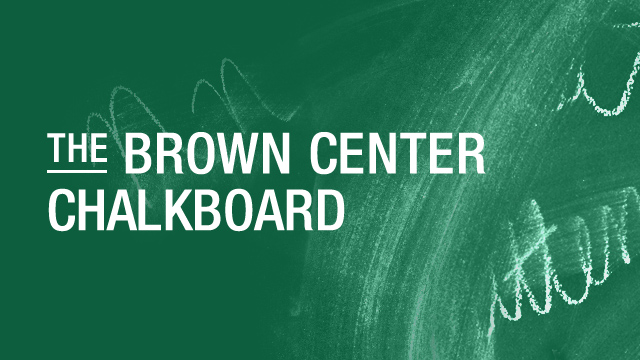On July 1, the Brookings Cafeteria Podcast hosted former U.S. Secretary of Education Arne Duncan, who is currently a Brookings nonresident senior fellow and a managing partner with the Emerson Collective. Secretary Duncan addressed the importance of education in providing opportunity for America’s youth, the need for a national consensus on education outcomes, and how everyday Americans can help to educate and inspire the new generation entering America’s schools.
“A time of crisis” for Chicago and creating hope
Secretary Duncan spoke as a native of Chicago on the myriad issues facing the city – gun violence, gangs, and high unemployment. He explained how Chicago’s problems and those of similar cities are all related to lack of educational and economic opportunities among the younger generations, and that urban issues cannot be solved by policing alone. “We can’t arrest our way out of it. We have to create opportunities for young people in communities who have been marginalized for too long.” Children growing up in Chicago are exposed to an environment in which nearly half of black men between 20 and 24 are unemployed and over 90 percent of non-fatal shootings remain unsolved. Children turn to crime not because they’re “bad kids,” but because they grow up to feel marginalized and excluded from meaningful opportunities. “When the gangs are the only ones hiring,” explains Duncan, it is no wonder that the cycle of violence continues.
Duncan sees education and job opportunities as the key to addressing systemic inequalities within Chicago and other cities. As a part of the Emerson Collective, Duncan has participated in a campaign to fund around 4,500 summer jobs within the most disadvantaged and crime-affected neighborhoods of the city. His engagement with Chicago’s community makes it clear to him that the majority of children and adolescents want to be productively engaged, but opportunities like summer jobs programs have long wait lists and too small of a supply to meet most of the applicants. “The opportunity has not been there and that’s what we’re trying to add to the mix.” Duncan adds that for many young people of these disadvantaged neighborhoods, “the goal was not to get out and escape, the goal was to create opportunities for others as well.”
Starting early on education and keeping America competitive internationally
“The best use of any single tax dollar is in creating more opportunities for high-quality preschool,” says Duncan, pointing to recent findings that show a seven dollar return on every dollar invested in early childhood development. Despite a Department of Education initiative to improve funding for such programs, the U.S. still ranks low among the international community in its commitment to early education. The ones who are most negatively affected by low funding for pre-K programs are members of disadvantaged communities, with the average poor child beginning kindergarten “12 to 16 months behind” other children in their class. Duncan insists that starting early in education is key to improving opportunities and addressing social issues. “This is the right thing for kids, the right thing to strengthen communities, and the right thing if we want to be competitive in the global economy.”
Secretary Duncan then turned to how the American education system compares to others within the developed world. He explains that the greatest impediment to successful education reform is the tendency to argue about what the goal of education should be, when the answer is clear: “to have the best-educated workforce in the world.” He encourages voters to maintain a bigger picture view of American education, keeping in mind that the most important competition is not between school districts or states, but rather between the U.S. and other rising nations. Duncan says that we’re so decentralized and fractured that we’re missing the bigger picture. “We need national goals, we need a national strategy….when we play small ball rather than look at the big picture we not only hurt kids, I think we hurt our nation.” Movements such as the Common Core are a major step in the right direction, but people must remember that investments in education pay their dividends in the long-term.
“We need national goals, we need a national strategy…when we play small ball rather than look at the big picture we not only hurt kids, I think we hurt our nation.”
The role of community leadership in giving kids a chance
Creating opportunities for America’s disadvantaged youth is more than just a policy issue, as community involvement can play a vital role in improving outcomes. Children need adults to steer them in the right direction, and “relationships create hope,” explains Duncan. Everyone in the local community can offer some assistance towards that goal, such as by helping kids learn to read or by assisting older students in writing college applications or financial aid forms. Community members can also help by volunteering for school boards and by voting for candidates who express a sincere interest in improving education.
Returning to Chicago, Duncan expresses optimism for the future. Despite the harsh realities facing the city, he says, community members still care about doing the right thing. “There are so many good people out there who aren’t numb to the problem, who aren’t hiding from the problem, who aren’t hopeless, but who, every single day, in their own ways, are trying to create something better. That’s how we’re going to get there. We’re going to get there listening to kids, partnering with kids, empowering kids, and helping them drive us to the solution.”
Grant Michl contributed to this post.
The Brookings Institution is committed to quality, independence, and impact.
We are supported by a diverse array of funders. In line with our values and policies, each Brookings publication represents the sole views of its author(s).



